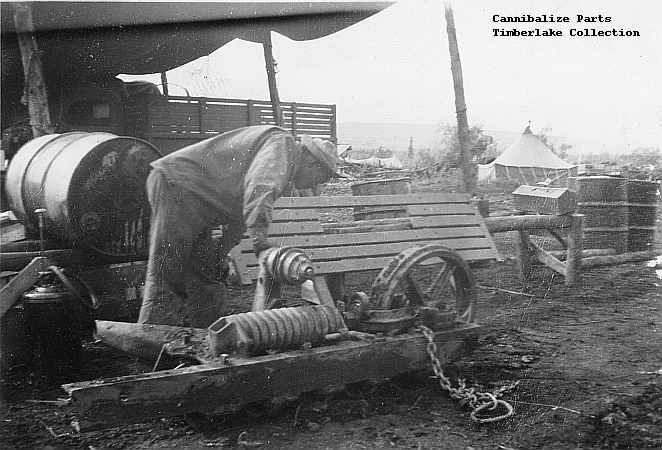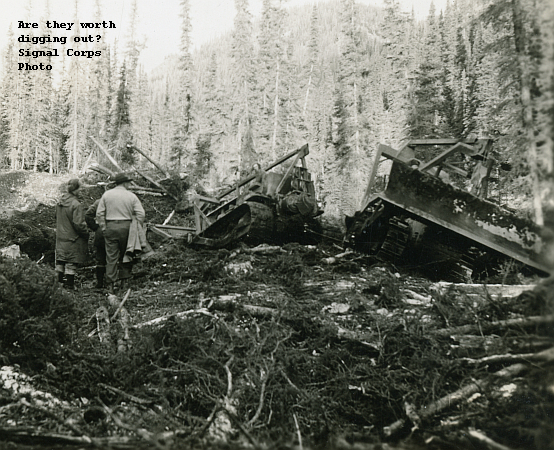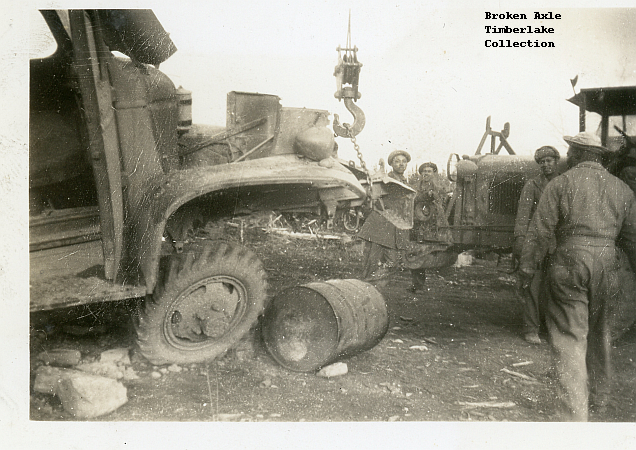
For the 93rd Engineers in Yukon in June the motor pool’s first frantic mission, getting heavy equipment through and out to the road, rapidly morphed into an equally frantic ongoing mission—supporting the line companies in maintaining and fixing it once they got it.

With heavy equipment, especially the big Caterpillar bulldozers, finally in hand, the black soldiers of the 93rd Engineers raced through Yukon toward the Teslin River. The white soldiers of the 340th needed an access road to their starting point 70 miles into the wilderness at the Teslin River. The dozers of the 93rd rushed to create it.
But the primitive access road inevitably presented problems. In his memoirs, General Hoge remembered, “You had to go every day. . .we had to move. . .we had to make speed.” Mortimer Squires, motor officer for the 93rd, remembered, simply, “We moved so fast.”

Squires described the D8 bulldozer as “a good machine.” It takes a heck of a piece of equipment to slam trees down plowing through mud and permafrost. Squires made a point of noting that black operators quickly became very proficient.
But dust, grit and mud abraded vital moving parts of trucks and heavy machinery. And slewing through the endless mud took a terrible toll. Bulldozers took a furious beating, and other equipment suffered too. Deep mud flowed onto the floor of a jeep and buried the rear end of a truck. Truck axles broke under the strain of moving over the rough road. Dozer rollers broke—as did tracks. The chronic shortage of replacement rollers and tracks rendered them precious.
First echelon maintenance fell to the line companies.
Capt. Boyd of Company C made each equipment operator responsible for his vehicle’s maintenance. Before turning the equipment over to the next shift, each operator checked the oil, filled the fuel tank and lubricated moving parts. The machines ran twenty-four hours a day except for Sunday when they got a break, so mechanics could check them thoroughly.
Each company had a platoon designated to supplement the operators’ basic maintenance. And the Motor Pool kept roving lube trailers constantly on the move, lubricating everything in sight.
For More on Bulldozers on the Highway